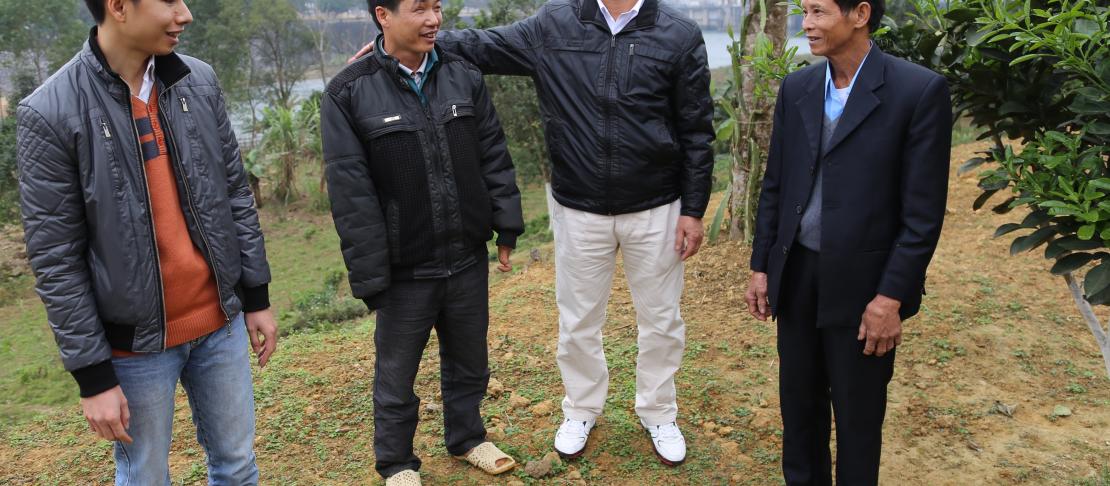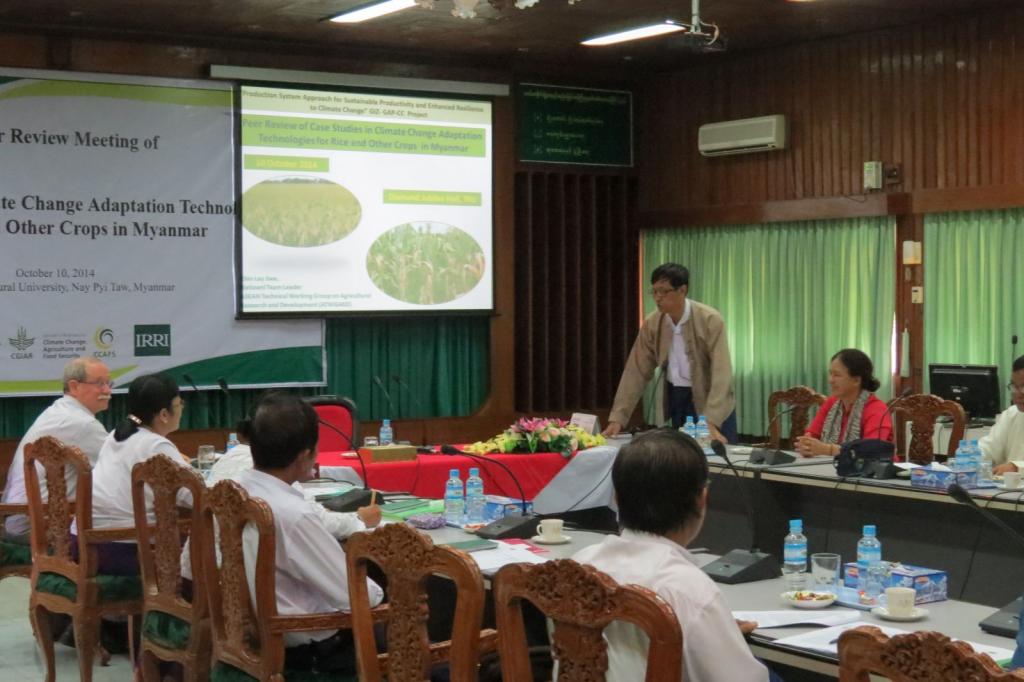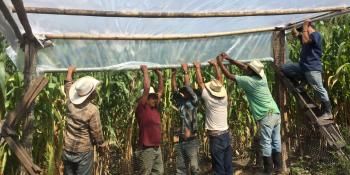Collaboration with climate network synergizes climate-smart agriculture efforts in Southeast Asia

The ASEAN Climate Resilience Network ensures that states' agricultural sectors are in a better position to adapt to climate change
The Southeast Asia region is highly vulnerable to climate change due to its strong reliance on agriculture and natural resources for their food and livelihood. As such, addressing climate change impacts to ensure food security for a fast-growing population is one of the many challenges faced by Association of Southeast Asian Nations (ASEAN) member states. Over the years, member states have been addressing this problem through regional cooperation.
One of its major accomplishments is the establishment of the ASEAN Climate Resilience Network (ASEAN-CRN), which ensures that agricultural sectors of member states are in a better position to adapt to climate change and optimize mitigation potentials. The network promotes climate resilience through the exchange of information, expertise and experiences on climate-smart agriculture (CSA) among member states. By providing a dialogue platform for CSA in the region, the ASEAN-CRN links policy-makers to scientific institutions, universities, national research institutions in agriculture and international organizations.
ASEAN-CRN has collaborated with the CGIAR Research Program on Climate Change, Agriculture and Food Security (CCAFS) to form innovative strategies and approaches in promoting CSA in the region by strengthening the technical and institutional capacities of the member states.
Since the formation of the ASEAN-CRN in 2014, CCAFS has been an active partner and contributor to the network’s regional activities, particularly in its work in Myanmar. It facilitated a national consultation and study conducted by the Myanmar Ministry of Agriculture and Irrigation (MOAI) and the Yezin Agricultural University (YAU) to identify existing CSA practices in the country.
 The Myanmar national team consulted with YAU and CCAFS to identify and prioritize CSA practices on rice and maize in Myanmar for upscaling. This is one of the works of CRN in Southeast Asia. Photo: Dr. Khin Lay Swe
The Myanmar national team consulted with YAU and CCAFS to identify and prioritize CSA practices on rice and maize in Myanmar for upscaling. This is one of the works of CRN in Southeast Asia. Photo: Dr. Khin Lay Swe
CCAFS has also linked funding opportunities under the Climate Technology Centre and Network (CTCN) and the Climate Technology Network and Finance Centre (CTNFC) managed by the United Nations Environment Programme (UNEP) to the ASEAN-CRN for funding their projects and activities on CSA.
Recognizing the need for more synergized regional programs among the policy-makers and development partners, CCAFS will also partner with the collaborating member states on the further promotion and conduct of the following CSA practices:
- Model farming
- Design of suitable CSA technology packages for vulnerable areas
- Crop insurance
- Early warning systems and climate services
These are just four of ASEAN-CRN’s eight fields for regional cooperation identified in its Action Plan for 2016-2017, an output of the First ASEAN-CRN Planning Meeting, in which CCAFS participated.
In May 2016, the ASEAN submitted their views on the priority adaptation measures, practices and technologies regarding agriculture to the Subsidiary Body for Scientific and Technological Advice (SBSTA) 44 of the United Nations Framework Convention on Climate Change (UNFCCC) in Bonn, Germany. Based on the outputs of the ASEAN Regional Guidelines on Promoting Climate Smart Agriculture Practices and the regionally-coordinated study Promotion of Resilience for Food Security in ASEAN, these submissions discuss the agriculture sector’s adaptive responses to the changing climate within the region.
Vietnam, with the initial efforts of Thailand, led the preparation of the submissions on behalf of the member states, while the ASEAN-CRN with support from the CCAFS and the Food and Agriculture Organization (FAO) of the United Nations led the submission process. As the ASEAN is relatively new to international discussions and negotiations, CCAFS reviewed and synthesized their submissions into the required format by the UNFCCC.
Following the SBSTA 44 workshops in Bonn, parties are now considering how issues related to agriculture can continue to be addressed in the UNFCCC. Decisions regarding this are likely to be reached at the 22nd Conference of Parties (COP22) in Marrakesh, Morocco.
CCAFS is now developing a policy brief that simplifies, classifies and analyses pros and cons of 10 different agricultural adaptation options to support negotiators. ASEAN-CRN, through Ms. Imelda Bacudo, the Senior Advisor of the ASEAN-German Programme on Response to Climate Change, Agriculture and Forestry, will collaborate with CCAFS in developing guidelines to help member states develop proposals on Nationally Determined Contributions and a work plan for agriculture.
Read more
- Creating synergies with umbrella program on climate change in Southeast Asia
- Climate-smart crops for Myanmar’s dry regions
- Myanmar’s climate-smart agriculture strategy: a roadmap to resilience and sustainability
Kristine Villagracia is the ASEAN Climate Resilience Network Coordinator at the Deutsche Gesellschaft für Internationale Zusammenarbeit (GIZ) GmbH.



